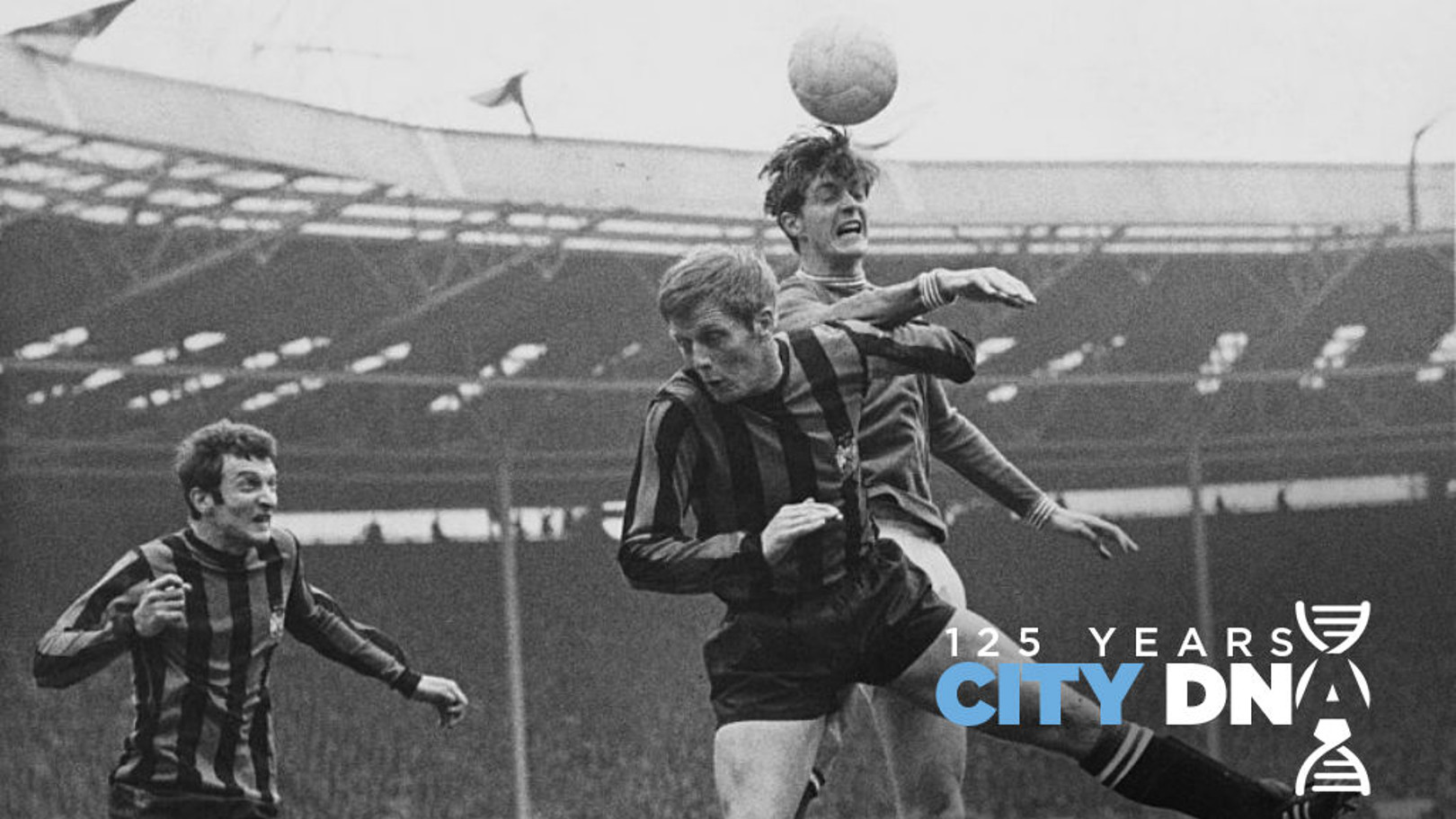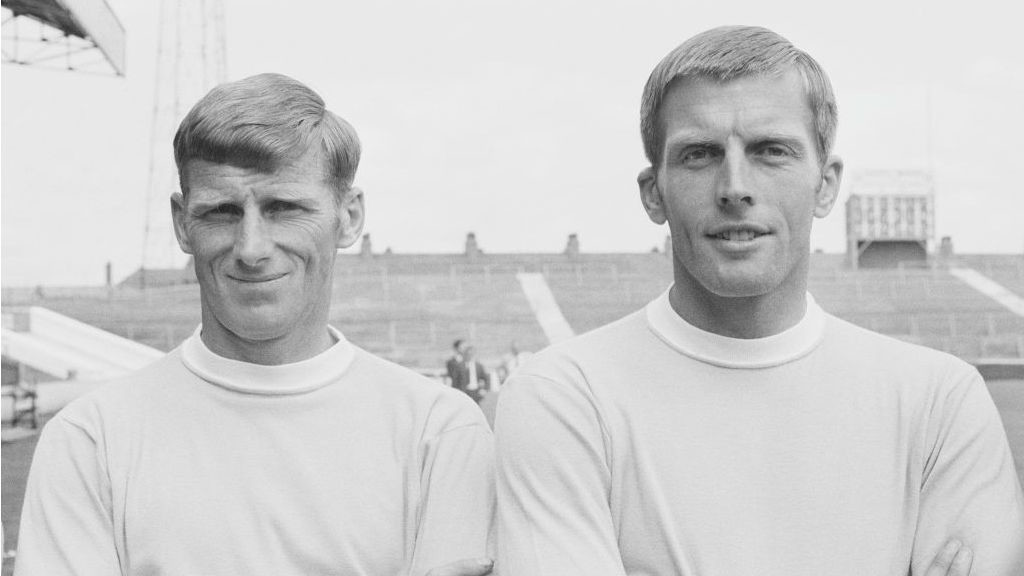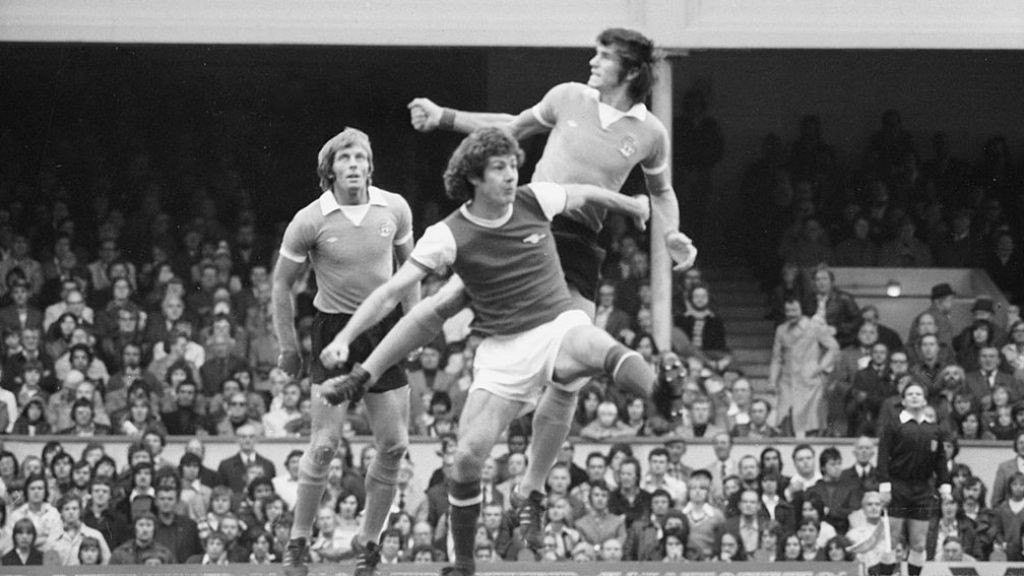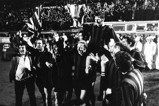In looking for the very embodiment of the phrase ‘unsung hero’ there are surely few more deserving contenders than Oakes.
Though one of the principle architects of City’s dazzling era of success in the late 1960s and early 70s, Oakes’ name is rarely at the forefront when that period is brought up.
But, as those lucky enough to have seen him play can attest, Alan was one of the key pillars in that period of sustained excellence.
And the acclaimed holding midfielder – known as a half-back during his playing days - holds his own unique place in City history.
Oakes has the distinction of having played more times for City than any other player in the course of our 125-year existence.
Over the course of 17 wonderful years at the Club, Oakes amassed a staggering total of 680 appearances for City, scoring 34 goals along the way.
But that longevity only tells half the tale of a man who personified all that is great about the Club.
Born in Winsford, Cheshire in 1942, Oakes joined City as an amateur at the age of 15 in 1958 where, amongst his early duties, were to clean the boots of legendary German goalkeeper Bert Trautmann.
Oakes subsequently turned professional with the Club a year later and was handed his first team debut in November 1959, with City drawing 1-1 against Chelsea.
It was a modest start to what turned into a magnificent career
The cousin of fellow City legend Glyn Pardoe, Oakes went on to play 18 First Division matches in 1959–60, establishing himself as vital part of manager Les McDowell’s side.
However, the early 1960s proved lean years for the Club with City being relegated from the topflight in 1963.
The arrival of the avuncular Mercer and astute coach Allison in 1965 however proved the catalyst in reviving our fortunes... and Oakes was at the forefront of that memorable period.
Arguably the Fernandinho of his era, Oakes was - very much like the modern day Brazilian - the epitome of a team player.
Happy to do the heavy lifting, Oakes was more than glad to stay in the shadows with the attention focused on high-profile colleagues such as Mike Summerbee, Francis Lee and Colin Bell.
That modesty and reticence was the measure of both the player and the man.
But his work rate, reading of the game and all-round team ethic marked him out as one of the first names on Mercer and Allison’s team-sheet.
His honours list alone makes for seriously impressive reading.
A key component in City’s second division title success of 1965/66, Oakes then became one of the building blocks of our subsequent golden period under Joe and Big Mal.
Alan proved a towering figure in City’s dramatic 1968 first division title triumph as well as our FA Cup final win over Leicester twelve months later.
Oakes then tasted twin cup success in the spring of 1970 as City secured both the League Cup and European Cup Winners Cup and he was also part of the City side that enjoyed Charity Shield success in both 1968 and 1972.
A by-word for consistency and excellence, such were Oakes’ enduring powers that in his 16th season at City, he won his first Player of the Year award.
Fittingly, in what proved his final season at the Club, Oakes ensured he went out a winner as he shone at Wembley once more to help City lift the 1976 League Cup.
The quiet man of Maine Road, Oakes always sought to shun the limelight.
But all of his City alumni from that golden period are in no doubt to Oakes’ stature, impact and enduring legacy.
“People go on about Bell, Lee and Summerbee but we were a team – and Alan was so key to everything we achieved,” states Buzzer. “He was such a big part in our success.”
That glowing testimonial is echoed by Tony Book.
Captain of that great late 60s side, Book, in his subsequent role as City’s coach and manager, again had cause to give thanks for Oakes’ know-how and influence at the heart of the engine room.
“Alan was just a tremendous player,” Skip says. “He didn’t like any fuss or special attention… he just got on with the job week in, week out.
“He was one of those guys you knew could always count on. We were so lucky to have him in that side.”
The admiration for Oakes wasn’t just felt inside Maine Road.
No less a luminary than Bill Shankly testified that he was in no doubt as to the City midfielder’s many virtues.
“Alan Oakes is exactly the kind of player youngsters should use as a model,” the legendary former Liverpool exclaimed.
Though Alan represented the Football League against the Scottish League in 1969, full international honours with England eluded him.
In retrospect, it seems amazing that Oakes never won an international cap.
However, he was unlucky to have played in an era when a dominant England were spoiled for choice for midfielders.
Appropriately enough, Alan’s final appearance for the Club was against arch-rivals Manchester United in an Old Trafford derby in May 1976, nearly 17 years after his City debut.
Upon leaving Maine Road, Oakes went on to enjoy a successful six-year spell as player-manager at Chester City, guiding the Seals to the Debenhams Cup in 1977 and the last 16 of the FA Cup.
Along the way he chalked up another formidable achievement… that of playing professional football across four separate decades.
Oakes subsequently enjoyed separate coaching spells at Port Vale and back at Chester.
But it’s for his magnificent feats at City that he deservedly will be best remembered and valued.
“Alan was a great, great player and he’s a fantastic man to boot,” is the verdict of Joe Corrigan, who played with Oakes throughout his own proud City career and who sits second behind him in the Club’s all-time appearances records.
Inducted into the Club’s hall of fame in 2005, Alan proudly stands tall in the pantheon of all-time City greats.
And his magnificent appearance record is unlikely to be ever broken. Truly the very essence of our DNA.














